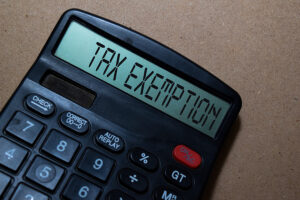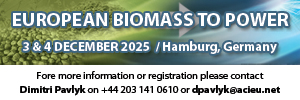EU approves Swedish tax exemption schemes for non-food biogas and bio-propane

In June 2020, the Commission had approved the schemes under EU State aid rules, but the Commission's decisions were annulled by the General Court on 21 December 2022.
The Commission's investigation
On 29 June 2020, the Commission approved the prolongation until 31 December 2030 of two Swedish schemes that exempt from energy and CO₂ taxation: (i) biogas and bio-propane that is used in heat generation, and (ii) biogas and bio-propane that is used as motor fuel.
The estimated budget for the period 2021-2030 was €550 million (SEK 5.94 billion) for the heating fuel scheme and €477 million (SEK 5.15 billion) for the motor fuel scheme.
The Commission found both schemes compatible with EU State aid rules, and in particular with the 2014 Guidelines on State Aid for Environmental Protection and Energy (‘EEAG').
On 21 December 2022, the General Court annulled the two 2020 Commission decisions on procedural grounds. The General Court concluded that the Commission should have opened a formal investigation procedure to assess whether the tax exemptions combined with support from other Member States, such as Denmark, led to the overcompensation of biogas producers.
Following the General Court's judgment, the Commission opened an in-depth investigation on 30 January 2024 to re-examine the compatibility of the tax exemption schemes under EU State aid rules, and in particular the 2014 EEAG and the 2022 Guidelines on State aid for climate, environmental protection and energy (‘CEEAG').
In particular, the Commission has investigated whether the potential cumulation of aid may lead to overcompensation in favour of those producers when they sell biogas in Sweden.
The Commission's assessment
The Commission's investigation confirmed that the Swedish tax exemption schemes comply with EU State aid rules, in particular with the 2014 EEAG and the 2022 CEEAG.
In particular, the Commission concluded that the schemes contribute to the development of renewable energy, in line with national and EU energy and climate objectives, and that they are necessary to address residual market failures that would prevent the biogas and bio-propane to be sold to the extent needed to contribute to the environmental objectives under the schemes.
It also said they are appropriate to incentivise the consumption and production of sustainable non-food-based biogas and bio-propane.
Additionally, they are proportionate, as the aid under the schemes does not exceed the difference between the higher costs of sustainable non-food-based biogas and bio-propane and the costs of natural gas and liquefied petroleum gas, respectively.
Moreover, the Commission did not receive any concrete evidence that the tax exemptions combined with support from other Member States, notably Denmark, led to the overcompensation of biogas producers.
Alongside that, the Commission's investigation confirmed that both Sweden and Denmark consider the impact of potential support from other Member States when monitoring their schemes and that the risk of overcompensation is appropriately addressed through the combination of the Swedish and the Danish monitoring mechanisms.
Margrethe Vestager, Executive Vice-President in charge of competition policy, commented: "Our in-depth investigation has confirmed that these tax exemption schemes for biogas and bio-propane are in line with EU State aid rules. The measures support the consumption of sustainable fuels, thereby contributing to the transition towards a net-zero economy."



















